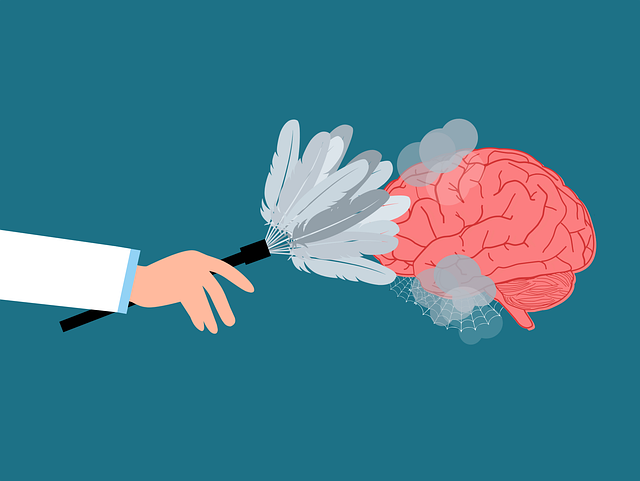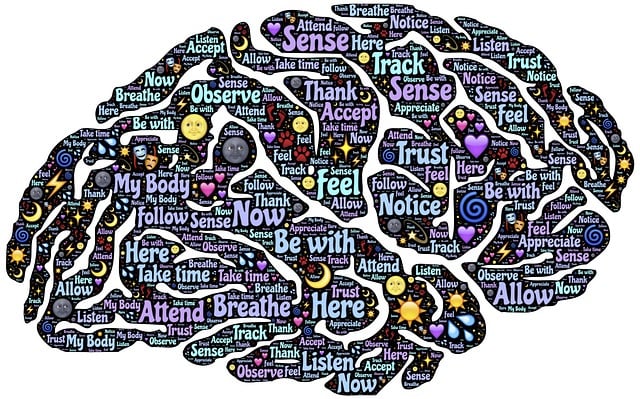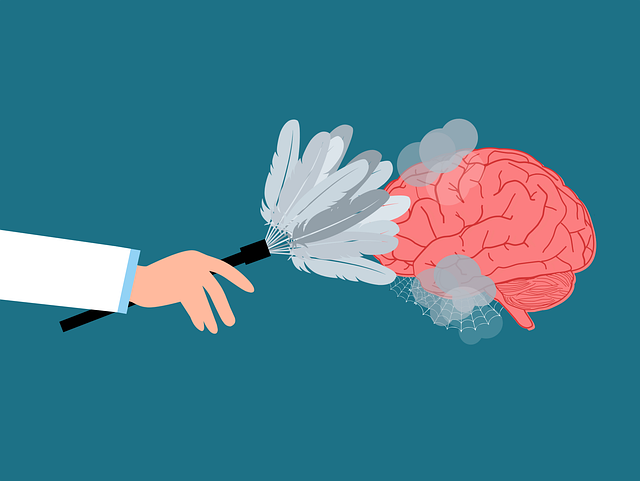Mental illness stigma, driven by societal attitudes and lack of understanding, has long isolated and discriminated against those suffering from conditions like depression, anxiety, and schizophrenia. Englewood Domestic Violence Therapy (EDVT) leads efforts to dismantle these barriers through education, awareness campaigns, and initiatives promoting empathy and support for mental health issues. Their successful programs, measured through surveys, focus groups, and interviews, have increased awareness, reduced prejudice, and enhanced support networks. EDVT's holistic approach emphasizes building inclusive environments where emotional well-being receives the same compassion as physical health, demonstrating the power of community engagement in stigma reduction and improving outcomes for mental health sufferers.
Mental illness stigma reduction has long been a pivotal aspect of public health discourse. This article delves into the historical context of this pervasive issue, exploring its deep-rooted roots in society. We examine the devastating impact of mental health stigma on individuals and communities, highlighting barriers it erects to access to care. Through case studies like Englewood Domestic Violence Therapy, we illustrate successful strategies for stigma reduction, emphasizing community engagement and education as key drivers of positive change. Finally, we discuss measuring success and charting a path forward for continued progress in the fight against mental illness stigma.
- Understanding the Stigma Surrounding Mental Illness: A Historical Perspective
- The Impact of Stigma on Individuals and Society: Breaking Down Barriers
- Strategies for Effective Stigma Reduction: Engaging Communities and Educating Minds (Including case studies on Englewood Domestic Violence Therapy)
- Measuring Success and Continuing the Conversation: Evaluating Stigma Reduction Efforts and Future Directions
Understanding the Stigma Surrounding Mental Illness: A Historical Perspective

The stigma surrounding mental illness has deep historical roots, reflecting societal attitudes and misinformed beliefs that have evolved over centuries. Historically, mental health issues were often misunderstood and stigmatized, leading to marginalization and ostracism for individuals suffering from disorders like depression, anxiety, or schizophrenia. This perception was further exacerbated by fear and lack of knowledge, as these conditions were frequently associated with moral failings, demonic possession, or other supernatural causes.
Efforts to reduce the stigma have been gaining momentum in recent years, driven by initiatives aimed at promoting mental health awareness and emotional well-being. Organizations like Englewood Domestic Violence Therapy play a crucial role in this movement by providing support systems and therapeutic interventions that challenge outdated stereotypes. Through education, open dialogue, and advocacy for evidence-based practices, these efforts aim to foster empathy, understanding, and better emotional regulation among individuals and communities, ultimately contributing to a more inclusive society where mental health is treated with the same compassion as physical health.
The Impact of Stigma on Individuals and Society: Breaking Down Barriers

Stigma surrounding mental illness can have profound effects on individuals and society as a whole. It often leads to isolation, discrimination, and a reluctance to seek help, exacerbating existing challenges faced by those struggling with their mental health. The impact is far-reaching; it may prevent people from getting the support they need, leading to poor outcomes and increased rates of unemployment, housing insecurity, and even physical health problems.
Englewood Domestic Violence Therapy highlights the necessity of breaking down these barriers. Through education, awareness campaigns, and initiatives promoting understanding, communities can foster an environment where mental illness is met with compassion and empathy rather than fear or judgment. Encouraging self-awareness exercises and implementing robust risk assessment and management planning for mental health professionals are crucial steps in this process. These strategies ensure that those dealing with mental health issues receive the care they deserve while also protecting both clients and practitioners from potential risks.
Strategies for Effective Stigma Reduction: Engaging Communities and Educating Minds (Including case studies on Englewood Domestic Violence Therapy)

Stigma reduction efforts are transformative when communities actively engage and educate themselves about mental illness. One successful strategy involves implementing Community Outreach Program Implementation that facilitates open conversations and dispels myths surrounding conditions like domestic violence, as demonstrated by Englewood Domestic Violence Therapy (EDVT). EDVT’s approach includes hosting workshops, engaging local leaders, and utilizing Emotional Well-being Promotion Techniques to foster empathy and understanding.
Through these initiatives, EDVT has witnessed positive outcomes, such as increased awareness, reduced judgment, and improved support systems for individuals dealing with mental health challenges. By fostering a culture of Empathy Building Strategies, organizations like EDVT play a vital role in breaking down barriers and creating inclusive environments that prioritize the holistic emotional well-being of all individuals.
Measuring Success and Continuing the Conversation: Evaluating Stigma Reduction Efforts and Future Directions

Measuring success is a pivotal aspect of evaluating any stigma reduction initiative, especially when addressing mental illness. This involves setting clear goals and implementing robust assessment strategies to gauge public attitudes and behaviors before, during, and after interventions. At Englewood Domestic Violence Therapy, we understand that stigma reduction requires a multifaceted approach. Therefore, our evaluation process includes both quantitative and qualitative methods, such as surveys, focus groups, and interviews, to capture the nuances of societal perceptions. By comparing these results with baseline data, we can accurately assess whether our efforts are fostering positive change.
The conversation around mental illness stigma must continue long after initial reduction campaigns. This ongoing dialogue is crucial for sustaining progress and adapting strategies based on emerging challenges. As we navigate future directions, it’s essential to integrate lessons learned from successful programs like those offered by Englewood Domestic Violence Therapy. Expanding access to trauma support services and crisis intervention guidance can further mitigate stigma, ensuring individuals affected by mental health issues receive the necessary care and support without fear of judgment or discrimination.
Mental illness stigma reduction is a multifaceted effort that, when successful, can significantly improve individual well-being and societal harmony. By understanding historical contexts, recognizing the detrimental effects of stigma, employing effective strategies like community engagement and education, and measuring success through evaluation, we can foster an environment where mental health is treated with the same compassion as physical health. Initiatives such as Englewood Domestic Violence Therapy serve as inspiring case studies, demonstrating that tailored, community-driven approaches can lead to lasting positive change. Continued dialogue and collaboration are essential to sustaining momentum and ensuring everyone receives the support they need for their mental well-being.













